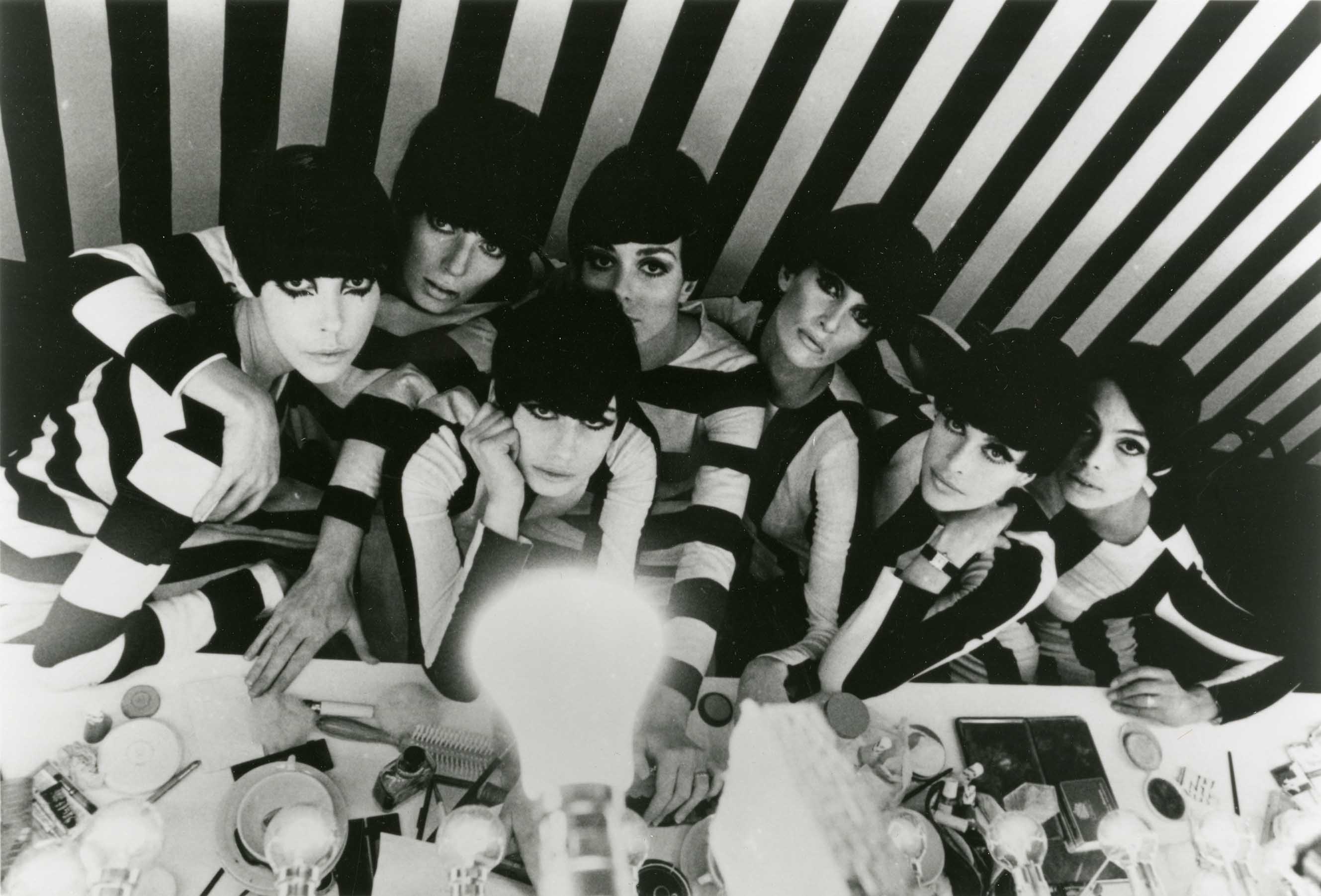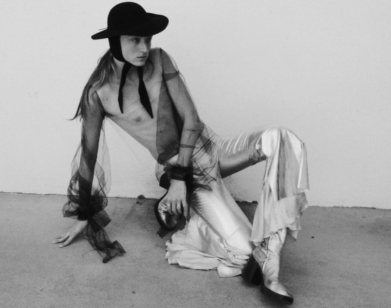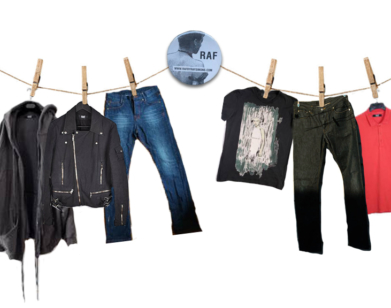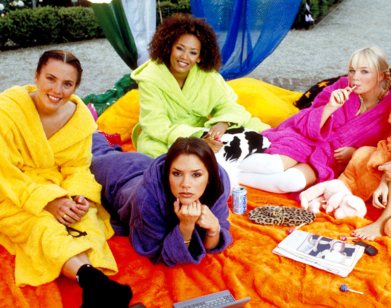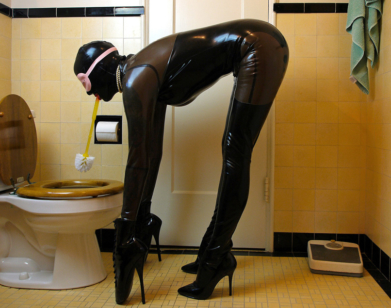William Klein’s spoof of American patriotism is even more relevant today
The spirit of resistance alive in America today is only able to exist because of those who helped to clear a path for us to march on freely. 89-year-old photographer and filmmaker William Klein is one such pivotal figure, a search and destroy dissident and the embodiment of a true living legend.
Born in New York City, Klein found solace at an early age in photography—but not, as it turns out, in NYC. Klein’s first photo book exposed the rougher edges of his hometown in a grim, gut-punching way that many found offensive, but which Klein said only corroborated “everything I resented in America and in New York.”
Without any professional training in photography or filmmaking, Klein naturally veered from conventional standards of photography. Rather than following Henri Cartier-Bresson’s and Brassaï’s lead, Klein made himself and his camera known, and in doing so, captured women on the streets in motion—perhaps blurred, maybe off-center—notably transforming our perception of women as passive denizens of the world.
Yet it was his film work, which came later in life, that really allowed him to flex his subtle ingenuity and speak his mind (if indirectly)—and which will be shown at Quad Cinema in a week-long cinematic retrospective. Shrouded in satire, the political and social commentary that he imbued in his films is the sort that few people are comfortable expressing or getting behind even today. But it’s a helluva watch.
His first fictional feature, Who Are You, Polly Magoo?, sends up the fashion industry—in particular, the outlandish, absurd atmosphere at Vogue, where he worked for some time. Even more audacious is Mr. Freedom, a political takedown of American imperialism, veiled in satire and superhero tropes. And it’s this film that’s the subject of this interview with Klein, conducted by French film director Abraham Segal in 1970.
Broaching everything from the sort of films Mr. Freedom satirizes to the public’s reaction and Klein’s thought process behind the casting, the interview offers a rare glimpse into the mind of Klein during this pivotal period of his life, and feels disturbingly relevant today.
Excerpted from From The Third Eye: The Evergreen Review Film Reader edited by Ed Halter and Barney Rosset (Seven Stories Press, March 2018):
ABRAHAM SEGAL: I saw Mister Freedom in Paris and I had the impression that the audience reacted very well, that people are receptive to what’s said and shown in the film.
WILLIAM KLEIN: It’s funny, but I rediscovered the film, what its intentions were, in commercial movie houses after having, more or less, let it get away from me in private showings.
SEGAL: Because if you judge by the reaction of certain critics…
KLEIN: Well, everybody knows what critics are like. I was very conscious of this in America with the film Far From Vietnam. There were critics who went stark raving mad and launched into political explanations on the level of a concierge in a fit of rage.
I noticed that certain people are shocked by the film’s vulgarity, and others by its violence. They’re shocked by the vulgarity and the violence in a film—a Punch and Judy film, a graffiti film —but they don’t seem shocked by the vulgarity of a Johnson or a Rusk announcing for the 2600th time that “We are waiting for a gesture of reciprocity from Hanoi.” If that isn’t the most abominable vulgarity, what is?
The film isn’t nearly as bad as the reality, a reality where people talk like missionaries and drop three million tons of bombs on a little country that hasn’t done anything to them.
It’s vulgar and grotesque bad faith when Americans boast of having stopped the bombings in the North… It’s a good deal for them—they lost lots of planes in the North… Now they’re dropping all their bombs on the South—which was already getting four-fifths of them.
What can you call behavior like that?
There’s no exaggeration in the film, to my mind. On the contrary…
Mister Freedom is an American folk hero, if you like, the American hero of American films. He’s John Wayne, Burt Lancaster . . . John Abbey! You find the face that Americans put on in films. The guy who wants to do the right thing, who even gets conscience-stricken, the guy who tortures himself, who asks himself questions. This anguish is a big performance they put on. In his speech in San Antonio, Johnson said, “Every night before I go to bed, I rack my brain, I ask myself: ‘Have I done enough for peace?’ I pray each night that people will understand that violence is useless, that people want peace all over the world.”
But to me, Mister Freedom isn’t touching. I find him ridiculous and I emphasize this when he begins to have doubts, by a super-syrupy music. There’s music by Stephen Foster in the background: “Old Black Joe.” The sentimentalism of spirituals written by whites, a mixture of a bad conscience and tears about the lot of the blacks.
I think I’ve brought out very strongly bow grotesque Mister Freedom’s dialogue and his attacks of conscience are. And he’s completely crushed when Marie-Madeleine’s kid calls him a fascist… he even gets stigmata.
SEGAL: I think the denunciation is even more forceful in that he has a human face. A ridiculous one, a grotesque one, but a human one. It Mister Freedom were simply the…
KLEIN: The evil robot, yes of course.
SEGAL: Your film is openly political, but this doesn’t prevent it from winning public approval.
KLEIN: Which proves, perhaps, that I was right to use our folk imagery, because films like Far From Vietnam didn’t go over very well. How can you get people to go to a film and want to talk about it, discuss it, when they come out? I made a film that’s a kind of booby trap. People may come to see adventure, fist-fights, and…
SEGAL: I don’t think so. They’re aware that it’s about politics.
KLEIN: It’s obvious that you have to put on a mask in order to talk about politics in a commercial movie house in France or anywhere else. I put on a mask when I make this sort of film. You try to fool the distributor with stills of fights, of bare breasts, and so on… but I must say the distributor doesn’t go along that easily! What can be done?
In Cuba the film industry is in fine shape. There are directors there like Santiago Alvarez and the directors of the national cinema, Alfredo Guevara and Saul Yenin—very capable men who know a lot about film. They want to do films and television programs that not only answer the needs of the country but are also quality productions. And they manage to. But can this be done anywhere else besides Cuba?
SEGAL: The spectator doesn’t have much trouble recognizing the reality behind the masks.
KLEIN: When he hears Mister Freedom saying, “I’m ready to go anywhere to discuss peace with anyone,” it seems to me that the next time he hears Johnson or Nixon say that he’ll burst out laughing or choke with rage. People in France aren’t that familiar with certain of these formulas, but in the United States people will recognize them right away.
SEGAL: Here, on the other hand, the audience was very receptive to the meeting with Super Frenchman.
KLEIN: Yes, but there were things that were censored. Super Frenchman says: “I prefer my dictatorship to that of the people, of Freedom, of Moujikman, of Red Chinaman.” They asked me to take this sentence out. I suggested that the word “dictatorship” be replaced by “democracy.” They said that that was very insidious, but they couldn’t object to the word “democracy.”
SEGAL: There’s a certain vagueness surrounding the reasons for Mister Freedom’s failure. Was it because of a trick pulled by a French girl, a “Red” agent, as Claude Julien tried to lead us to believe?
KLEIN: No. It’s quite clear in the film that Mister Freedom’s defeat isn’t due to dirty tricks on the part of Marie-Madeleine—she’s a kind of double-agent Delilah—but rather to a popular uprising, which catches the [Communist] Party as much by surprise as the one in Czechoslovakia. And Mister Freedom’s defeat is a local thing, and not clear-cut. The struggle continues, as they say.
SEGAL: But the intervention of the Anti-Freedom commandos is very important.
KLEIN: When I began the film a year ago, I couldn’t imagine what form a popular uprising might take in France. So I thought of a front with ties to the Russians (like the Cubans, for example), which at a given moment would break off with them and act independently.
The stylization creates problems for some people. Rightly or wrongly, I used a comic-strip style. A few Marxist-Leninists have reproached me for having represented seven hundred million Chinese in the form of a dragon. They think it’s a caricature. It’s all right to caricature the enemy, but not your friends. But the basic style of the film is that of a carnival puppet show, and it would have been stacking the cards if all the characters hadn’t been carnival-like.
Even in the Chinese and Vietnamese mime plays everyone is masked and made-up. The Anti-Freedom commandos wear a sort of uniform. If you really wanted to depict a popular movement in France, that’s not the way you’d go about it. In any case, it’s not a film about the May revolution—as certain people think—but rather a fable about a little country pitting itself against imperialism. The Anti-Freedom commandos want to change over to direct action. They break with the Russian who wants to make a deal with Mister Freedom.
SEGAL: Nonetheless, Marie-Madeleine is an ambiguous person.
KLEIN: There are several conventions people may have some trouble accepting and perhaps I’m wrong to use them. I don’t know. Mister Freedom is something like a sheriff, or a James Bond. So certain film conventions are taken for granted, and exaggerated to the point of being absurd. The spectator must react in a Pavlovian sort of way, and then be brought back to reality or awakened by breaks in the tone so that he sees himself reacting. Marie-Madeleine is one of these mechanisms. But I thought it was clear when and how I put a stick in the wheels of the mechanism.
SEGAL: At certain moments the spectator finds a direct correlation between the characters in this fable and particular political personalities. But we can also tell ourselves that once the convention of the circus is accepted, we’re free to put any face we please behind the mask, and therefore it’s possible to interpret your intentions differently.
KLEIN: There’s a particular person behind most of the masks, or else the particular behavior of a certain country, a particular politics.
Mister Freedom is all the Westmorelands, the MacArthurs, the pin-up boys of the war. Doctor Freedom represents the system and its leaders—the Trumans, the Johnsons, the Nixons, and the Kennedys.
Almost all of Mister Freedom’s dialogue is made up of sentences from Rusk, Johnson, MacNamara. The ambassador is Lodge-Harriman. Moujik talks like Khrushchev. The Chinese Dragon gives out warnings like the 2000th solemn warning broadcast by Peking Information, and so on.
SEGAL: Red Chinaman is the only one not to have a human face.
KLEIN: That’s what the Marxist-Leninists have said. But the others aren’t any more human. De Gaulle is an inflated bladder. There are ministers who are pinball machines. And Mister Freedom himself is a doll, he comes unjointed, befalls to pieces.
They’re clichés, they’re folk images, popular prints. So in this gallery of images, China is a dragon. In order to illustrate this, I looked around for a dragon like the ones you see at popular festivals in China, as well as in Chinatown in New York, but I couldn’t find one, so I designed an inflatable dragon. The biggest and the least expensive one possible, because you mustn’t forget that the film cost relatively little. It was made for $270,000 in two complete versions, French and English, and when you think of all the sets and costumes. . . . And it was shot very fast—six weeks isn’t very long for this sort of film. But naturally, it took lots of preparation and tinkering.
WILLIAM KLEIN’S RETROSPECTIVE, THE EYES OF WILLIAM KLEIN AT THE QUAD CINEMA, RUNS UNTIL MARCH 13, 2018.

